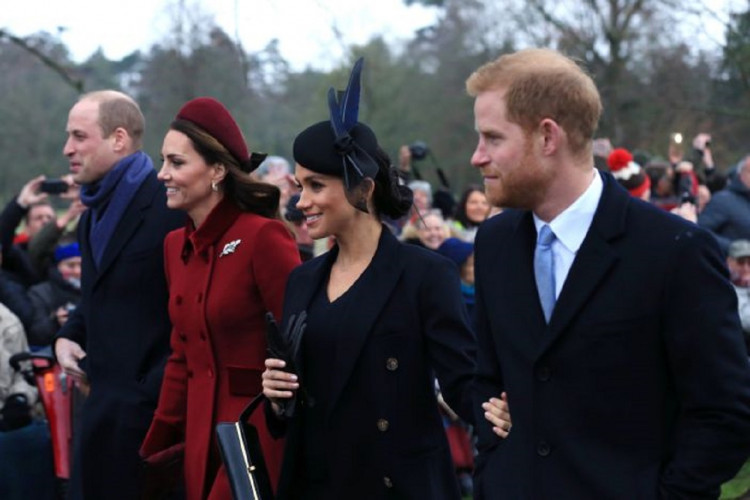The British Royal Family, perennial subjects of global fascination, have found themselves at the heart of a renewed debate, this time centered around the potential implications of Prince William's future ascension to the throne.
Journalist Peter Lloyd's recent comments on GB News have stirred the pot by suggesting that such an event would lead to Prince Harry and Meghan Markle, the Duke and Duchess of Sussex, being "foaming at the mouth" in anger. This provocative statement has ignited a flurry of responses from royal watchers and the media alike.
"I think that King Charles should abdicate, and I think that Prince William should step up and do the job, purely because I would love to see the reaction of Harry and Meghan," Lloyd remarked, envisioning a scenario that would dramatically alter the current royal hierarchy. His conjecture about the Sussexes' potential dismay at William's coronation was met with skepticism by fellow journalist Nina Myskow, who challenged Lloyd's assertion by asking, "Why would they foam at the mouth? You're being completely ridiculous!"
The exchange reflects broader conversations about the monarchy's future, especially in light of King Charles III's recent health concerns. Following a "successful" prostate operation, discussions about the King's ability to fulfill his royal duties and the possibility of an abdication in favor of Prince William have resurfaced, despite the traditional expectation that a monarch reigns until death.
Myskow defended the King's commitment to his role, stating, "So what? The King has waited this long to fulfill his role. He is not going to go easily." She highlighted the King's extensive engagement schedule, which significantly surpasses that of the Prince and Princess of Wales, casting doubt on the readiness of William to assume the mantle of kingship.
The debate also delves into the work ethic and public responsibilities of the royal family members, with Myskow labeling William as "a bit of a shirker" and questioning his dedication to royal duties. This critique is juxtaposed with the King's robust schedule of public engagements, further complicating the narrative surrounding the potential for succession.
Royal expert Gareth Russell offered a different perspective, highlighting Prince William's deep connection to his late mother, Princess Diana, and suggesting that his approach to royal duties is influenced by her legacy. "This is where you very much see that William is Diana's son," Russell noted, adding depth to the ongoing conversation about the future leadership of the Royal Family.
Amidst these debates, the health of Princess Kate has also come under the spotlight, with her recently undergoing surgery. Kate's "planned abdominal surgery" has led to a temporary step back from public engagements for the senior royals, further stoking discussions about succession and the distribution of royal responsibilities.
As these discussions unfold, the royal family remains under intense scrutiny, with every statement and hypothetical scenario analyzed for insights into the dynamics at play within the House of Windsor. The speculation about Harry and Meghan's reaction to a theoretical early ascension of Prince William to the throne not only highlights the enduring public interest in the Sussexes but also underscores the complex interplay of personal relationships, duty, and tradition that characterizes the British monarchy.





